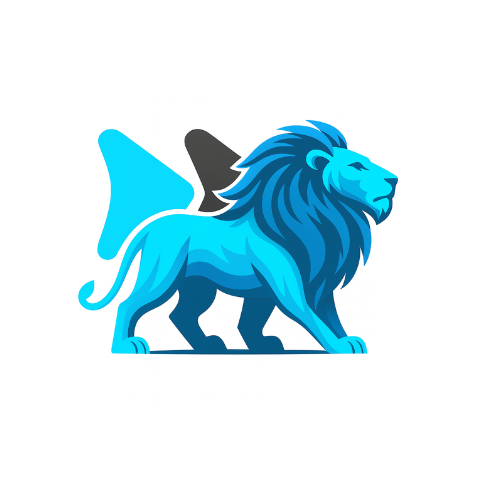IN PRESS: Maurice a tout pour devenir la plateforme stratégique du continent africain
- News Desk

- 13 oct. 2025
- 3 min de lecture

Le Journal du Dimanche (27 July–2 August 2025)
Mauritius is at the center of this movement — a strategic alliance between Mauritius, Africa, and the United Arab Emirates. Rhavy Nursimulu, Director of Logi Consult, discusses the resulting momentum.
You recently concluded the third edition of the African Trade and Investment Forum in Dubai. What was the outcome?
This forum represents more than a series of events; it marks the beginning of a genuine new architecture for African trade, built over time.
In Abidjan, we established the foundations by positioning the Mauritius International Financial Centre (IFC) as a gateway for African investments — linking capital markets with logistics.
In Abidjan, we reinforced this trajectory toward West and Central Africa. In Dubai, we consolidated this dynamic by bringing together international partners around a clear goal: building an African financial ecosystem based on local transformation, regional connectivity, and financing mobility.
The momentum has been launched. The goal now is to operationalize this ecosystem by aligning the key tools: capital, infrastructure, logistics, and markets.
What kinds of projects or partnerships emerged from these forums?
We now have tangible discussions underway. Some are already at the signing stage. These partnerships span strategic sectors — logistics, industrial integration, and infrastructure — linking public institutions, investment funds, and regional development players.
Mauritius also plays a role in facilitating financial flows to secure and accelerate integration and trade finance.
Within this framework, and in line with the African Union’s agenda, Mauritius serves as both a financial and logistics interface, providing an institutional framework for these initiatives.
What specific role can Mauritius play in this continental dynamic?
Mauritius is positioning itself as a strategic hub for “Made in Africa”. It can become the continent’s preferred platform for transformation and re-exportation — especially for high-value-added goods within an integrated production chain.
Africa no longer wants to remain a raw-material exporter. Mauritius can take on a regional coordination role, linking supply chains — for example, processing African cotton into a full textile chain — while Kenya, for instance, handles regional logistics.
Mauritius offers a neutral, stable, and reliable institutional framework, which makes it the ideal gateway for African investment.
What does today’s Mauritian ecosystem offer African enterprises?
Mauritius now provides a complete suite of services to African businesses.
The Mauritius Commercial Bank (MCB), for example, accompanies corporate projects across the continent. The Financial Services Commission (FSC) has also enhanced the local ecosystem with financing tools and structures.
The African Leadership Forum (ALF), Rogers Capital, and the Mauritius Africa Fund are expanding Africa–Mauritius ties through logistics and financial integration.
Mauritius now proposes a strategic model based on stability, good governance, and transparency, allowing African firms to integrate regional and global value chains with confidence.
How can African countries help accelerate the “Made in Africa” transformation?
African states must embrace industrial sovereignty — by shifting from raw-material exports to finished or semi-finished goods.
For instance, Benin could export textiles instead of just cotton. This requires reliable logistics, efficient port infrastructure, and integrated service hubs (such as packaging, labelling, and value-added logistics).
Mauritius can contribute through regional supply-chain coordination — especially for African markets seeking quality-assured, certified, and traceable goods.
What role do the United Arab Emirates play in this dynamic?
The Emirates — including groups like DP World — are deeply involved in developing African logistics corridors.
Their model, based on logistics, infrastructure, and capital deployment, strengthens the Mauritian-African-Emirati triangle.
This cooperation fosters joint ventures, technology transfers, and South-South trade expansion, marking a major shift in global cooperation models.
How can investor confidence in the “Made in Africa” label be strengthened?
The key lies in risk reduction and standards harmonization. Investors need a framework that protects assets and aligns with international standards.
Transparency, traceability, and credible certification are essential. The “Made in Africa” label must represent not just origin, but also quality and reliability.
Lower logistics costs, simplified customs procedures, and trained human capital — especially youth and engineers — will accelerate Africa’s economic rise.
Did the Forum reveal any structural challenges?
Yes, three major obstacles:
Lack of regional integration — continental supply chains remain fragile.
Logistics fragmentation — intra-African trade depends too heavily on external routes.
Financing bottlenecks — local capital markets are underdeveloped.
Addressing these challenges will require coordination between African institutions, especially around the African Continental Free Trade Area (AfCFTA).
What message would you like to send to young African entrepreneurs?
The moment is now — for Africa and its youth.
Africa is not just a continent of resources; it is a continent of solutions, ideas, and creativity.
To young Africans, I say: invest, create, innovate.The Made in Africa label represents pride and potential.
With determination and cooperation, this generation can write a new page in Africa’s economic history.


Commentaires